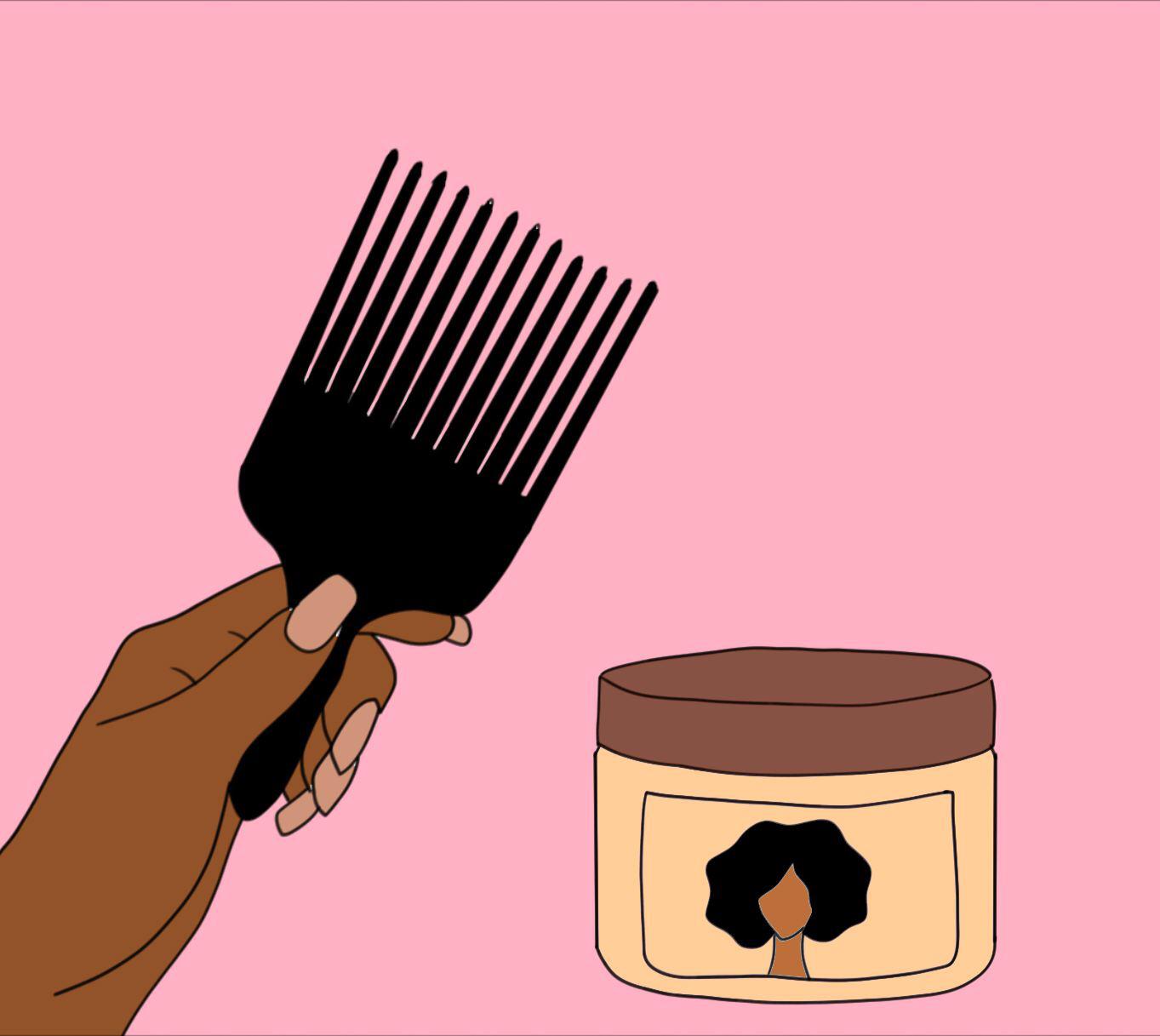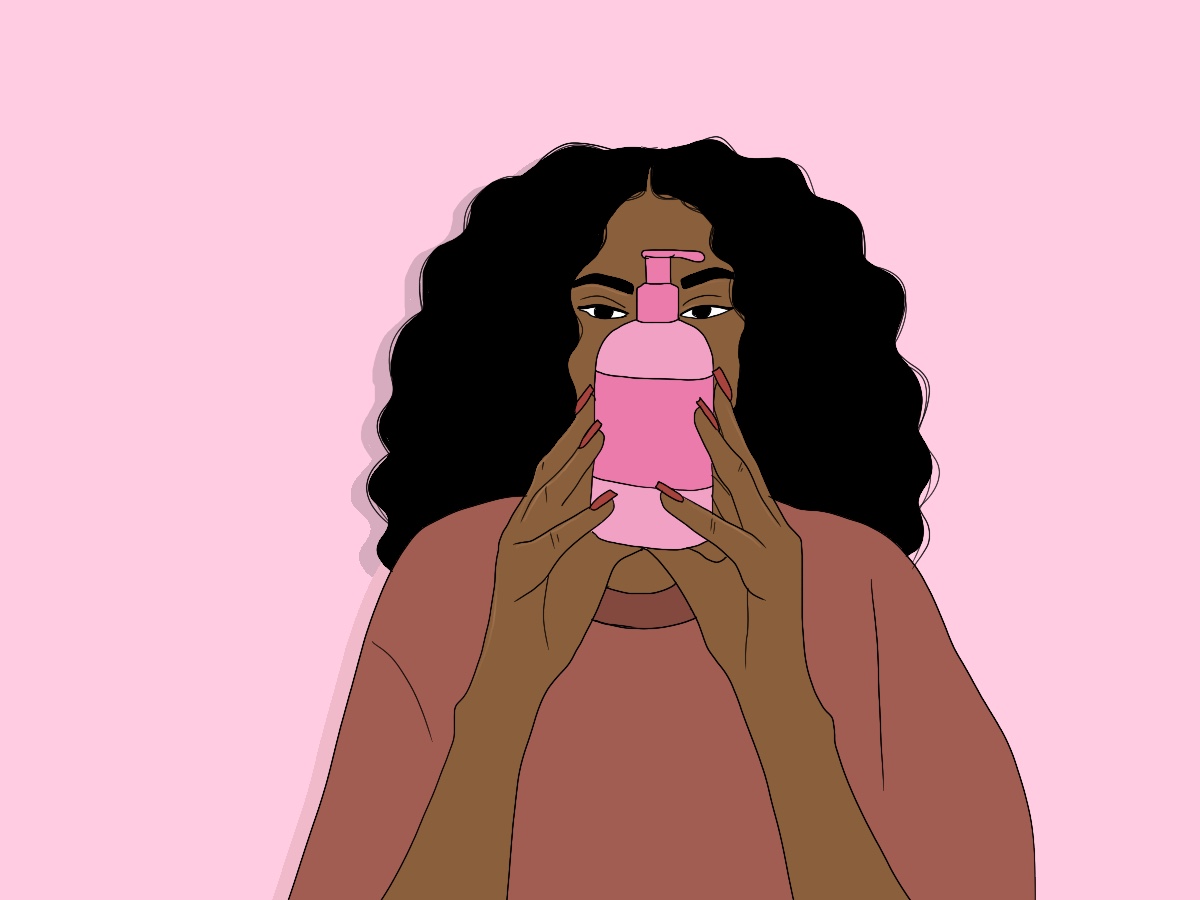I’ve always found it suspicious when white brands start selling Black products or using Black ingredients. When I discuss this with people, there are usually mixed reactions. Often the initial response is, ‘inclusion is great!’ – and it is; there’s no disputing that. It’s amazing to see yourself in the shows, shops and brands you’ve been supporting for years, and the impact this has on the younger generation can’t be understated.
But I think, as Black women, we should also be wary. Not all inclusion is positive. What may look like the solution to a deep-rooted problem could just be a brand slapping a band-aid over a wound that is more than skin-deep.
These were my thoughts when The Body Shop launched its new haircare range, including its star ingredient,’ Jamaican black castor oil’, which many Black women would recognise from their products. It’s also an ingredient that doesn’t often pop up in white haircare.
The Body Shop is touting this range as the saviour of ‘curls and coils’, but you have to wonder, is this really all for us? Because I’ve worked with similar brands and I know these launches rarely come from consumer demand. There are three questions Black women should ask themselves to decide whether a brand is genuine, and I asked myself these same questions when I saw The Body Shop’s launch.
1. What are the brand’s motives?
When I worked as a Team Leader at a similar company, we used to have meetings where we were given targets based on research. Some research showed that customers who bought their shea butter skincare range rarely bought their haircare, and the brand wanted to change that.
While the brand looked at that information as purely an issue with selling, I knew better. As a customer, a frontline employee and a Black woman, I knew that people who bought the shea butter skincare range weren’t buying haircare because most of these people were Black. And Black women don’t usually go to white brands for hair products.
But instead of trying to understand their consumer base, the brand’s solution was to create a shea butter haircare line.
Even though it initially did very well, it wasn’t being sold to Black women because Black women continued to buy their hair products elsewhere. For me, this showed that the brand cared more about profit than how its consumer base felt.
While there’s no proof that the launch of The Body Shop’s Jamaican Black Castor Oil range was driven solely by money, we all know that’s the real aim of any business. No decision will be made, no matter how great the cause, unless it gives them a margin for profit. In my experience, that’s the biggest reason for inclusion.
2. How do they talk about the products?

Often when brands sell these products, the focus stays on them. I remember having to do the same when I was selling the shea butter skincare line. We had to explain to customers why THE BRAND had chosen this product, how THE BRAND had discovered the benefits of shea butter, and how THE BRAND was helping women in Ghana by buying the shea nuts. There was no mention of how amazing African women were for using this product for years or that the brand was late to the party.
We’ve seen this move before with white brands adopting things like bonnets and coconut oil (so long ago now that most of us don’t even remember that it wasn’t the norm at one point).
And why is this so problematic? Because these types of discussions put the brand in a place of authority on issues and ingredients that were never theirs to begin with. It erases us from the forefront of the narrative, which becomes even more obvious when you realise they’re not selling to us at all. For more information, see Ancient beauty rituals: How indigenous women are reclaiming their culture.
3. Who are they selling to?
In an article written for The Independent, Maxine Harris, a Black freelance writer, tested The Body Shop’s new Jamaican Black Castor Oil range for herself. She wrote that it wasn’t great for 4C hair textures but would ‘work better on looser curl types’.
So, the range is aimed at white women and those without real coils or afros. This is not surprising, but that doesn’t make it any less annoying.
There are many hair products that I would never buy from white brands. Not because I don’t like them, but because they don’t work for me. Like many other Black women, I choose Black hair brands that were made for me in mind and go to Black hair shops where I can be overwhelmed by the choice of products that cater to my hair’s needs.
White women don’t need to do this. And that’s ok. Not everyone needs a slice of every pie.
So, when ranges like this don’t work for us, its shows that brands are taking from Black hair culture to give customers, who already have access to everything, products and ingredients that they never needed nor have cultural significance to them. Again, this suggests profit is a major factor in their decision-making.
Why are they deciding to sell now?
We can’t be surprised that many of these launches have happened in the last ten years. In that time, we’ve seen the rise of Black culture in the media, especially Black hair. Think about the animated short film Hair Love (2019), Emma Dabiri’s Don’t Touch My Hair (2020) or the Docuseries The Hair Tales, released on Disney+ for US Black History Month.
Like us, brands don’t exist in a bubble. They see these discussions, reactions and interactions just as we do, and they see gaps in their market that they want to tap into.
When you round up the answers to these questions, it becomes clear that many brands want to look like pioneers so that they can be a part of the trend. And this is dangerous because all trends die down. If brands like The Body Shop don’t investigate why these products are important to women with ‘curls and coils’, they could just as quickly discontinue these products when the topic is no longer the ‘hot new thing’. This can be a problem for any Black woman who has staked her wash day on these products.
What’s even more problematic to the wider Black hair space is that brands like The Body Shop can hide behind a big name and reputation. That’s what makes this appropriation so much worse. Because if Black women choose to go with the big name, the smaller Black-owned brands suffer.
In Hairvolution (2021), a book that gives a space for Black women to talk about their experience growing up with afro hair, we mention that hair is one of the few things that binds Black women together. Our hair often defines and connects us more than skin or culture, which can differ from person to person. And it isn’t just the styles we choose; it’s the whole culture of growing up with afro hair. Most of us can bond over stories about having a hot comb in our hair once a week or going to the hair shop to find a jar of Blue Magic. These experiences have created defining moments in our lives.
In trying to corner the Black hair market, I worry that white brands and companies are attempting to break that connection. It’s no longer about community and identity but just about making money.
And this worry is justified because we’ve seen it happen before. When white customers became interested in Shea Moisture, many Black consumers complained that the products stopped working for their afro hair. Similarly, Mielle’s acquisition by P&G earlier this year had many people taking to Twitter to voice their fears that the brand would no longer be about Black communities or helping Black women.
This launch by The Body Shop is no different. The Jamaican Black Castor Oil line uses our ingredients and is marketed for ‘coils and curls’, but it’s not for us. It’s for people who can use any haircare range from any store. People who never understood the importance of these products to our upbringing or cultures in the first place.
So, you can’t blame Black women for being protective – nor can you blame them for being apprehensive about launches like this. All of the evidence over the last decade has proven that when it comes to inclusion, we are rarely the ones being included. Instead, what is being included are our brands, looks, methods and ingredients, and we are rarely a part of the wider conversation about why these things are important. So, when a brand claims they are working towards ‘inclusion’, always ask if it’s about being inclusive or looking inclusive.
Find more beauty and style articles
Written by Zainab Raghdo
Illustrated by Francesca Mariama

